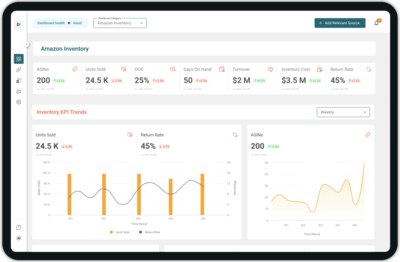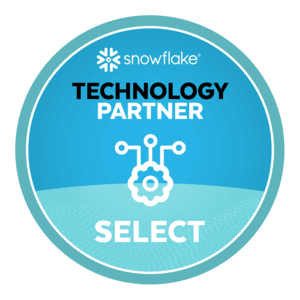Replicate PostgreSQL to Snowflake in minutes
PostgreSQL, an open-source RDBMS, handles data integrity and complex operations with ease. But when the volume and velocity of data increases, it requires huge effort and expertise to optimize PostgreSQL to run analytics queries within the desired time. To have an in-depth analysis of your PostgreSQL data along with data from various sources, moving your data to Snowflake is an accurate choice. You can also merge data from different sources with your PostgreSQL data and transform it into a consumable format for Snowflake.
In this article, we’ll go through the process of how you can migrate data from an existing PostgreSQL database into Snowflake.
Why integrate PostgreSQL to Snowflake
Whether it’s to move data to a database better suited for analytical querying, protecting an operational database from the high analytical load, or for a cloud migration process – replicating your PostgreSQL data to Snowflake will help you to unlock insights in near real-time and with predictive analytics. Replicating PostgreSQL data to Snowflake will give you access to reliable and well-structured datasets for analytics. Also, automating the movement and transformation of data allows the consolidation of data from multiple sources so that it can be used strategically.
PostgreSQL Overview
PostgreSQL is an open-source, object-relational database management system that runs on all major operating systems. It uses and extends the SQL language combined with many features that safely store and scale the most complicated data workloads. PostgreSQL has earned a strong reputation for its proven architecture, reliability, data integrity, robust feature set, extensibility, and the dedication of the open-source community behind the software to consistently deliver performant and innovative solutions.
Snowflake Overview
Snowflake is a modern and easy-to-use analytics data warehouse designed for the cloud. It uses a new SQL database engine with a unique architecture designed for the cloud. It offers far better performance, scalability, resiliency, and workload concurrency than any other cloud-based data warehouse in the market. What sets Snowflake apart is its architecture and data sharing capabilities. The Snowflake architecture allows storage and computation to scale independently, so customers can use and pay for computation and storage separately. Also, the sharing functionality makes it easy for organizations to quickly share governed and secure data in real-time.
How to replicate PostgreSQL to Snowflake
Here’s an overview of the two approaches you can use to replicate PostgreSQL data to Snowflake. This will allow you to evaluate the pros and cons of both and choose the one that best suits your requirement.
Build your own data pipeline
This process needs a lot of experience and consumes a lot of time and manpower. The chances of errors are more due to multiple integrated steps to be executed one after the other. You need to extract data using PostgreSQL APIs & then connect it properly with the Snowflake data warehouse. This whole process to build a custom data pipeline requires regular intervention that makes it cumbersome.
Use Daton to integrate PostgreSQL and Snowflake
Integrating PostgreSQL and Snowflake with Daton is the fastest & easiest way to save your time and effort. Leveraging an eCommerce data pipeline like Daton significantly simplifies and accelerates the time it takes to build automated reporting.
Configuring data replication on Daton only takes a few minutes and a few clicks. Your analysts do not have to write any code or manage any infrastructure, yet you can get access to PostgreSQL data in a few hours.
Daton’s simple and easy-to-use interface allows analysts and developers to use UI elements to configure data replication from PostgreSQL data into Snowflake.
Daton takes care of:
- Authentication
- Rate limits
- Sampling
- Historical data load
- Incremental data load
- Table creation, deletion, and reloads
- Refreshing access tokens
- Notifications
and many more important functions for data analysts to focus on analysis rather than worrying about the data replication.
Steps to integrate PostgreSQL with Daton

- Sign in to Daton
- Select PostgreSQL from the integrations page
- Provide Integration Name, Replication Frequency, and History. Integration name would be used in creating tables for the integration and cannot be changed later
- You will be redirected to PostgreSQL log in for authorizing Daton to extract data periodically
- Post successful authentication, you will be prompted to choose from the list of available PostgreSQL accounts
- Select required tables from the available list of tables
- Then select all required fields for each table
- Submit the integration
Sign up for a trial of Daton today!
Here are more reasons to explore Daton for PostgreSQL to Snowflake Integration
- Faster integration – PostgreSQL to Snowflake is one of the integrations Daton can handle very conveniently and seamlessly. By following a few steps you can easily connect PostgreSQL to Snowflake.
- Low Effort & Zero Maintenance – Daton automatically takes care of all the data replication processes and infrastructure once you sign up for a Daton account and configure the data sources. No need to manage infrastructure or write manual code.
- Data consistency guarantee and an incredibly friendly customer support team ensure you can leave the data engineering to Daton and focus on analysis and insights!
- Enterprise-grade data pipeline at an unbeatable price to help every business become data-driven. Get started with a single integration today for just $10 and scale up as your data needs grow.
- Robust Scheduling Options: This allows you to schedule jobs based on their requirements using a simple configuration step.
- Support for all major cloud data warehouses including Google BigQuery, Snowflake, Amazon Redshift, Oracle Autonomous Data Warehouse, PostgreSQL, and more.
- Flexible loading options allow you to optimize data loading behavior to maximize storage utilization and ease of querying.
- Enterprise-grade encryption gives your peace of mind
- Support for 100+ data sources – In addition to PostgreSQL, Daton can extract data from a varied range of sources such as Sales and Marketing applications, Databases, Analytics platforms, Payment platforms, and much more.
For all sources, check our data connectors page.
Let Daton handle the heavy lifting for your data while your engineering team focuses on generating value instead of worrying about the availability of data.
Other Articles by Saras Analytics,
- Amazon MWS for Sellers
- Automated Data Analytics
- Snowflake ETL
- How to Use WebEngage
- Data Engineering and Customized Data Collection
- What is PostgreSQL?PostgreSQL is an open-source, object-relational database management system that runs on all major operating systems. It uses and extends the SQL language combined with many features that safely store and scale the most complicated data workloads. PostgreSQL has earned a strong reputation for its proven architecture, reliability, data integrity, robust feature set, extensibility, and the dedication of the open-source community behind the software to consistently deliver performant and innovative solutions.
- What is Snowflake?Snowflake is a modern and easy-to-use analytics data warehouse designed for the cloud. It uses a new SQL database engine with a unique architecture designed for the cloud. It offers far better performance, scalability, resiliency, and workload concurrency than any other cloud-based data warehouse in the market. What sets Snowflake apart is its architecture and data-sharing capabilities. The Snowflake architecture allows storage and computation to scale independently, so customers can use and pay for computation and storage separately. Also, the sharing functionality makes it easy for organizations to quickly share governed and secure data in real time.
- Why should I replicate PostgreSQL data to Snowflake?Replicating your PostgreSQL data to Snowflake can help you unlock valuable insights in near real-time and with predictive analytics. Snowflake provides a modern and easy-to-use analytics data warehouse that offers far better performance, scalability, resiliency, and workload concurrency than any other cloud-based data warehouse in the market. Replicating PostgreSQL data to Snowflake will give you access to reliable and well-structured datasets for analytics. Also, automating the movement and transformation of data allows the consolidation of data from multiple sources so that it can be used strategically.
- How can I replicate PostgreSQL data to Snowflake?There are two approaches you can use to replicate PostgreSQL data to Snowflake. You can build your own data pipeline, which requires a lot of experience and significant time and effort. Or, you can use Daton to integrate PostgreSQL and Snowflake, which is the fastest and easiest way to save your time and effort. Configuring data replication on Daton only takes a few minutes and a few clicks, and Daton takes care of all the data replication processes and infrastructure.
- What are the benefits of using Daton to integrate PostgreSQL and Snowflake?Daton provides a faster integration with low effort and zero maintenance. Daton automatically takes care of all the data replication processes and infrastructure once you sign up for a Daton account and configure the data sources. Daton also guarantees data consistency and has an incredibly friendly customer support team. Additionally, Daton provides an enterprise-grade data pipeline at competitive pricing to help every business become data-driven. Finally, Daton offers robust scheduling options, support for all major cloud data warehouses, and flexible loading options.














